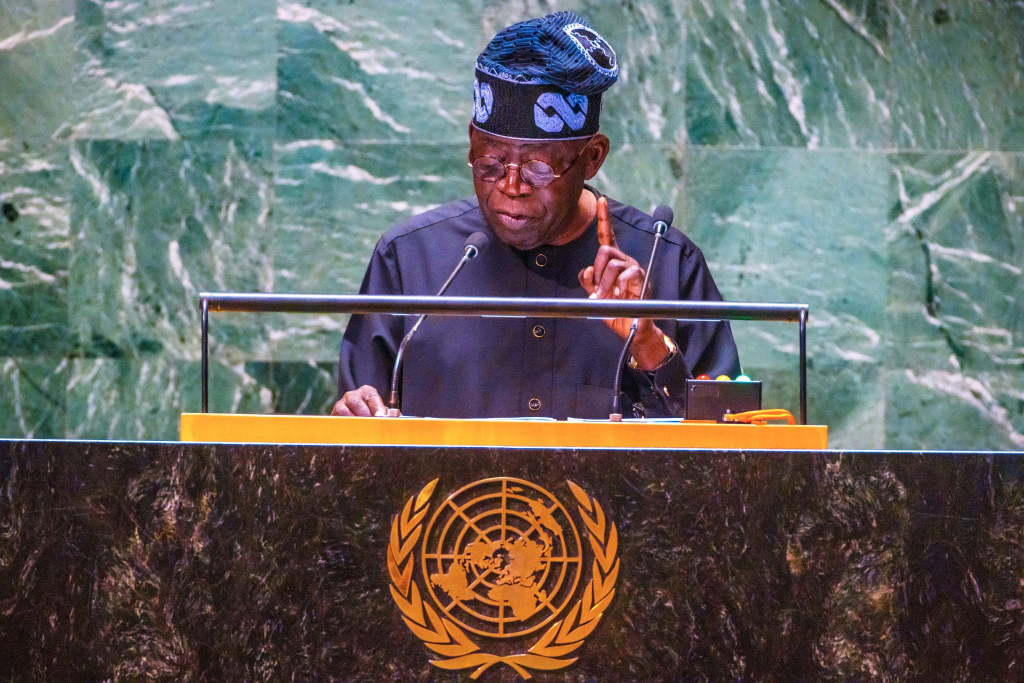
In an address to the United Nations General Assembly in New York, President Bola Tinubu urged UN member-states to take sincere and concerted actions to combat terror financing, economic sabotage, and the illicit trade of minerals and arms in developing nations.
President Tinubu emphasised the importance of global trust and solidarity in safeguarding the mineral-rich regions of Africa from exploitation and conflicts.
He highlighted the long-standing suffering and exploitation in the Democratic Republic of the Congo (DRC) despite a strong UN presence, pointing out that foreign entities, often aided by local criminals, have subjected thousands of people to illegal mining, diverting billions of dollars meant for development into violent enterprises.
President Tinubu stated, “The pillage of one nation’s resources by the overreach of firms and people of stronger nations must now end” and called on member nations to collaborate with African nations to prevent this 21st-century pillaging of Africa’s riches.
The President noted the effectiveness of his diplomatic efforts to attract new investments to Nigeria, presenting the country as business-ready.
However, he emphasised that the challenge lies in ensuring mutually beneficial cooperation.
President Tinubu also stressed the importance of a tailored approach to addressing the effects of climate change, asserting that nations should design and implement strategies based on their unique socio-economic strengths and weaknesses. He cited various projects in Nigeria, such as ‘The Great Green Wall’ and initiatives to combat deforestation, as examples of efforts that simultaneously advance economic and climate change objectives.
UNGA
The UN General Assembly (UNGA) is the main policy-making organ of the UN.
Comprising all Member States, it provides a unique forum for multilateral discussion of the full spectrum of international issues covered by the Charter of the United Nations.
Each of the 193 Member States of the United Nations has an equal vote.




